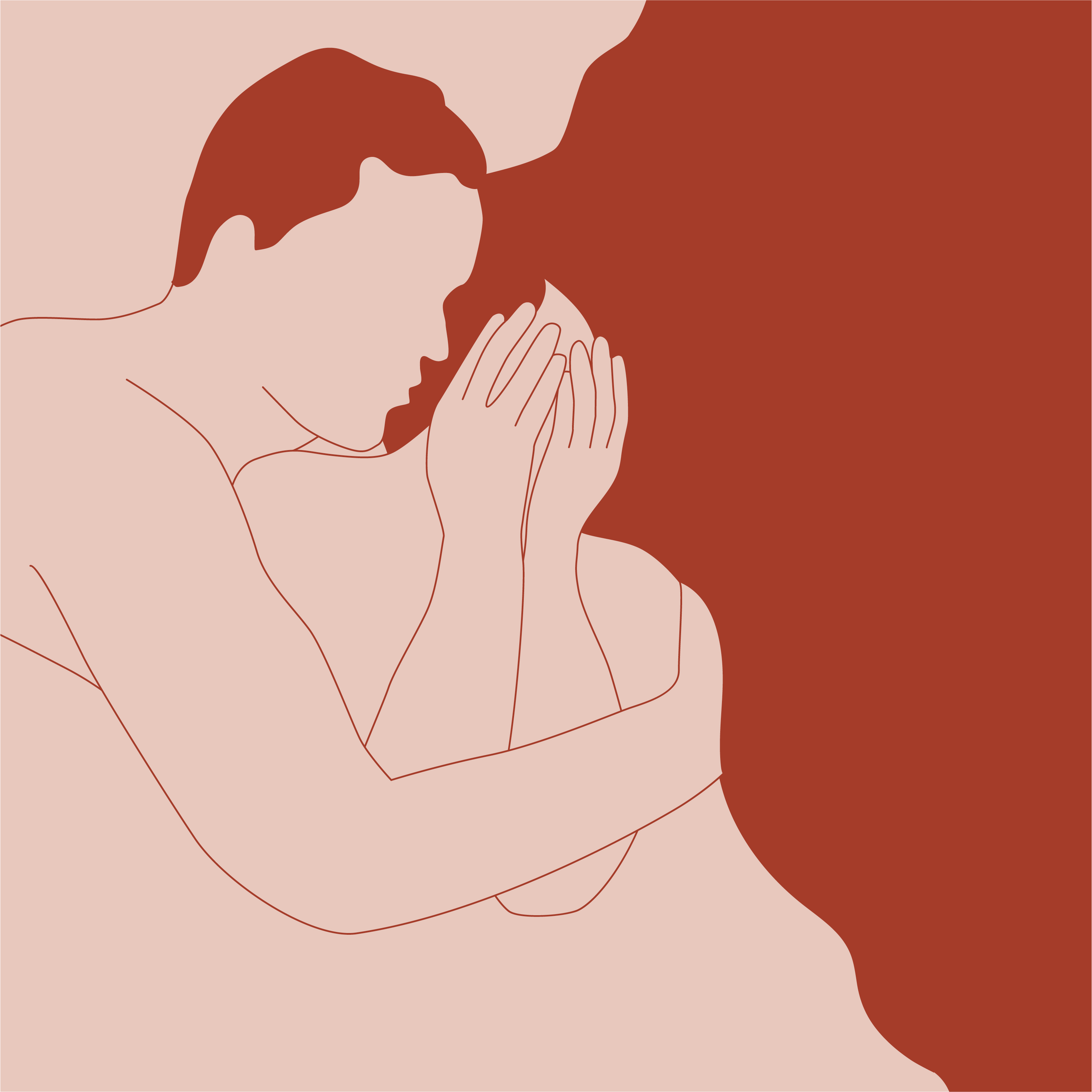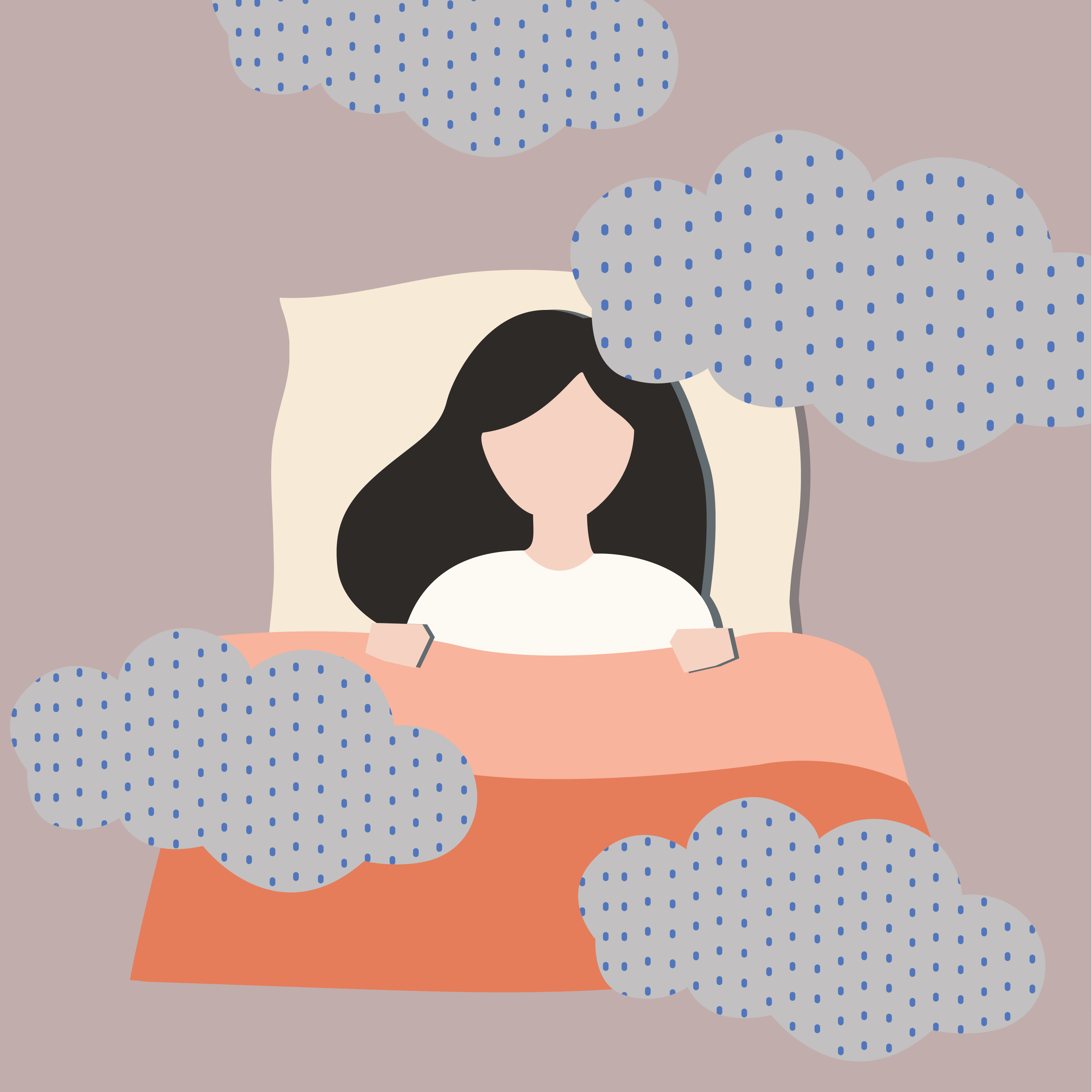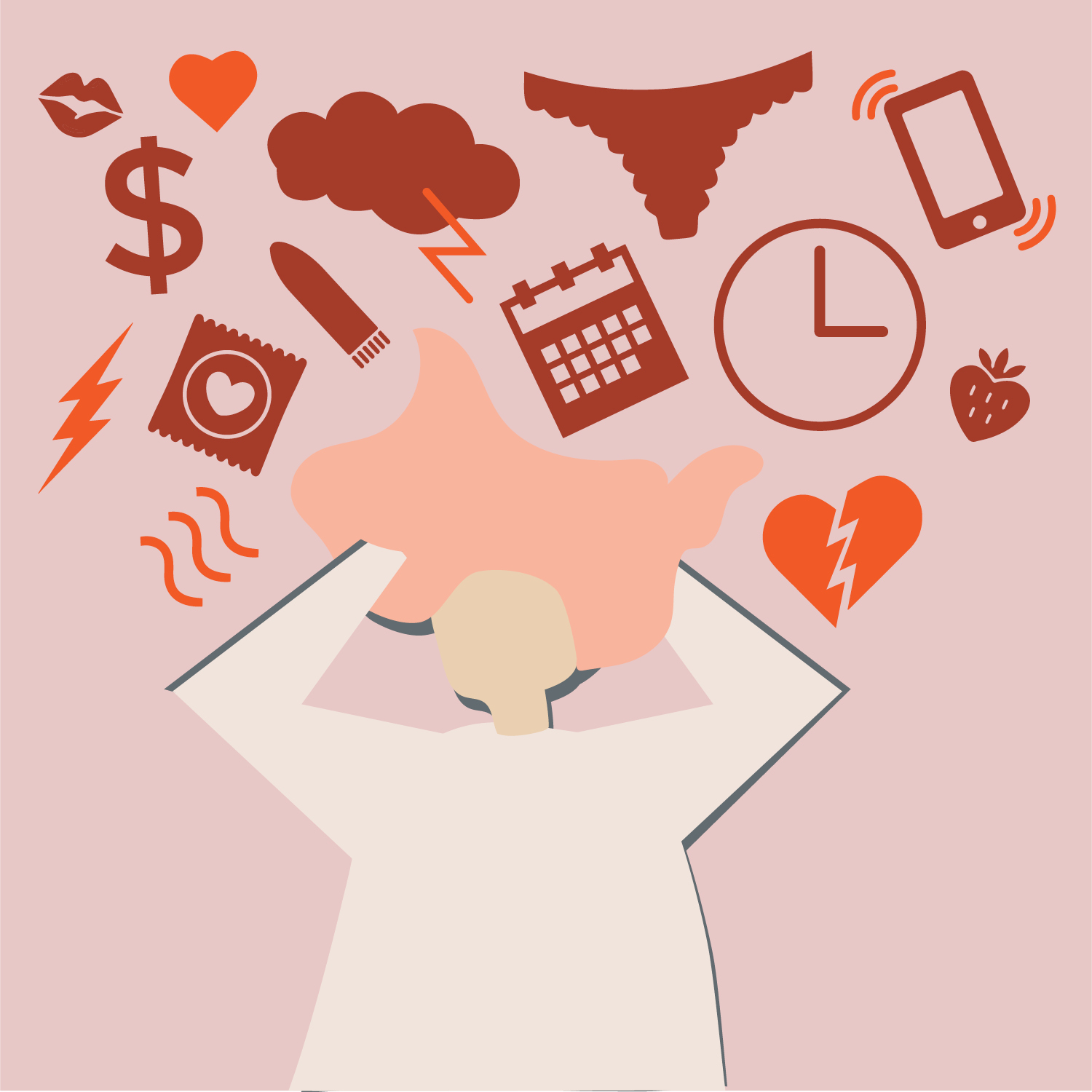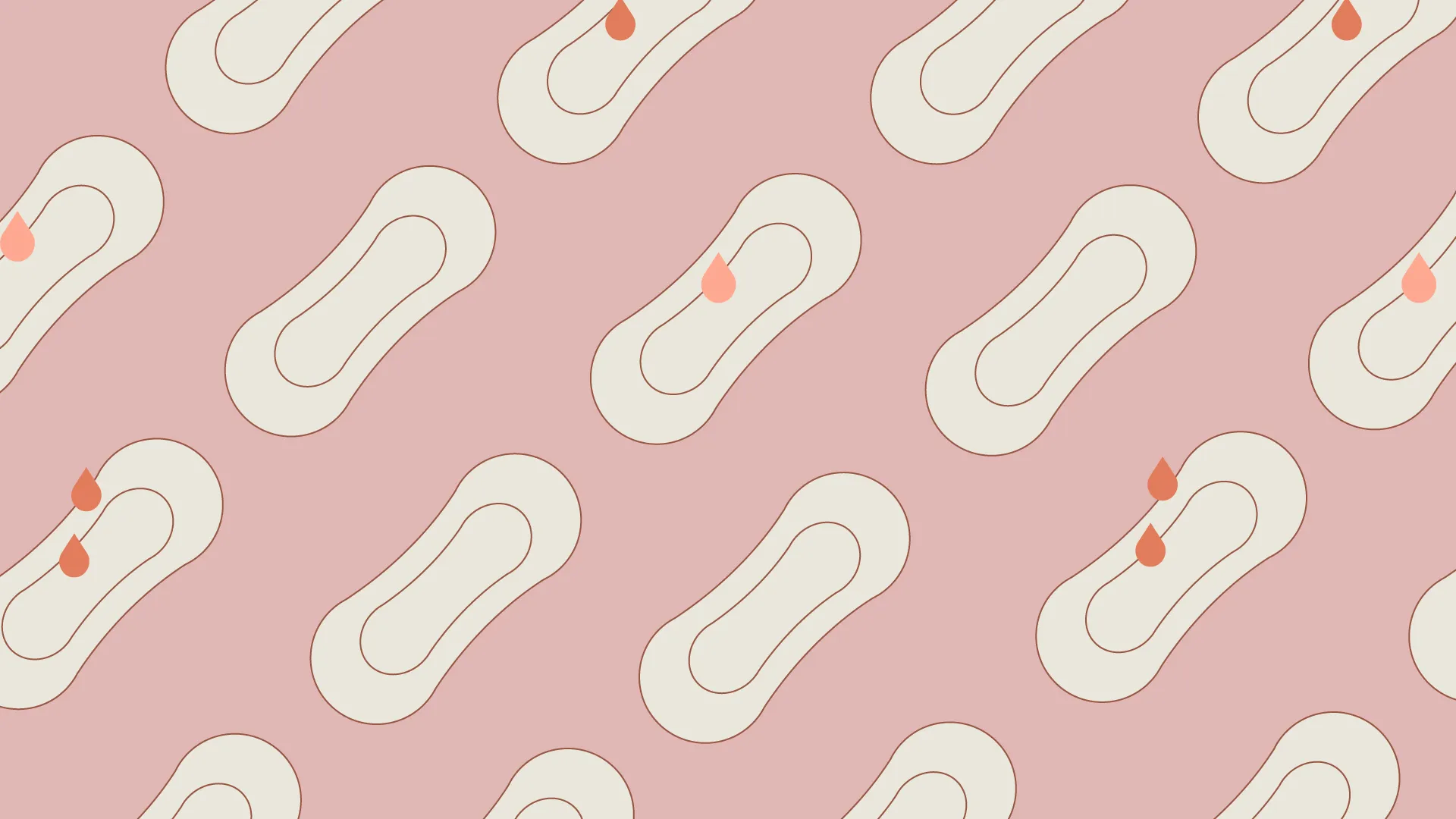Mar 21, 2025
MID-CYCLE SPOTTING AND BLEEDING AFTER PERIOD ENDS
You’ve just wrapped up your period, and you're ready to get on with your week - no pads, tampons, or cramps to worry about. Then, out of nowhere, you notice some unexpected spotting. Not quite your period, but not nothing either.
Sound familiar? You're not alone. A little bleeding after your period can leave you puzzled, maybe even concerned. But here’s the thing: while it might feel alarming, in many cases, it’s completely normal.
Let’s unpack what’s going on when your period ends, but the bleeding hasn’t quite called it quits.
First Things First - Is This Normal?
In a word, yes. Occasional light bleeding a few days after your period ends happens to plenty of people. Your body isn't a clock, it works on its own rhythm, and sometimes it throws in an extra beat. The trick is figuring out whether it’s a harmless glitch or something worth checking out.
If it's light, short-lived, and not accompanied by pain or other symptoms, chances are it’s not something to stress over. Still, understanding the “why” can help you feel more in control.
Spotting vs. A Second Period: What’s the Difference?
It’s important to know that not all bleeding is the same. Spotting is usually just a bit of blood - barely enough to fill a liner - and often isn’t red like period blood. Think pink, brown, or rusty.
Now, if the bleeding feels more like your regular flow, especially if it happens month after month, it’s worth chatting with your doctor. But most of the time, it’s just your body doing what it does.
So, What’s Causing It?
There are a few usual suspects when it comes to unexpected bleeding after your period.
- Ovulation Might Be the Culprit: Your body typically ovulates in the middle of your cycle, and for some, that process includes a little spotting. This is known as mid cycle spotting and happens when your hormone levels briefly shift, causing the lining of your uterus to shed just a little. Some people also feel a twinge of pain around this time, totally normal and nothing to worry about unless it’s severe.
- Hormones Doing Their Own Thing: Let’s be honest: hormones are sensitive creatures. They react to everything - stress, changes in weight, travel, sleep, even emotional ups and downs. If your oestrogen or progesterone levels shift, it can trigger bleeding even after your period has ended. This is especially common during times of transition like puberty, post-pregnancy, or while adjusting to (or coming off) hormonal birth control.
- Your Uterus Might Just Be Tidying Up: Sometimes, your period ends... but not quite. A bit of leftover blood or tissue might make its exit a few days later, and that can show up as light spotting. This kind of bleeding a few days after your period ends often appears brown or dark red and typically wraps up quickly.
Is Birth Control Playing a Role?
Absolutely. Whether you’ve just started the pill or you’re using an IUD, hormonal contraceptives can shake things up for a while. Spotting is common in the first few months as your body gets used to the new hormone levels.
Even if you’ve been on the same method for a while, missing pills or switching brands can cause some irregular bleeding. It's your body’s way of adjusting.
When Should You See a Doctor?
If the spotting is heavy, lasts more than a few days, or shows up like clockwork after each cycle, it’s time to check in with a healthcare provider. The same goes if it comes with pain, unusual discharge, or bleeding after sex.
More serious causes like fibroids, infections, or other conditions are less common, but they do happen, and early diagnosis always helps.
Could It Be Something Else?
Let’s say your period ended about a week ago, but now you’re spotting lightly again. If there’s even a small chance of pregnancy, this could be implantation bleeding. It’s usually very light - barely there - and might be mistaken for the start of another period.
Not sure? Taking a test or talking with your doctor can help put your mind at ease.
A Quick Note on Stress
If you’re feeling stressed, tired, or emotionally drained, your cycle might reflect that. Stress messes with hormone levels, which can lead to irregular bleeding. It doesn’t always get the attention it deserves, but your mental state has a major influence on your physical health, including your cycle.
Track Your Cycle, Know Your Body
Whether you’re using an app or jotting things down the old-fashioned way, tracking your cycle is one of the most helpful things you can do. It makes it easier to spot patterns and to notice when something's off.
If bleeding after your period becomes a regular part of your month, or if something just doesn’t feel right, bring your notes to your doctor. The more info you have, the better.
Final Thoughts
Bleeding a few days after your period ends can be confusing, but it’s often nothing serious. From hormone shifts to ovulation quirks or even your body clearing out some last-minute uterine lining, your body may just be doing its thing.
Still, you know your body best. If something feels off or becomes routine, don’t hesitate to get it checked. A quick visit can give you peace of mind, or catch something early that needs attention.
You deserve to feel comfortable and confident in your body, even when it’s being a little unpredictable.
Blogs

Jun 08, 2022
EXPLORING PERIOD CARE IN CULTURES AROUND THE WORLD
Our TOM Talks panelist Sabina McKenna explores how different cultures around the world approach period care.
Read More
Jun 08, 2022
STOP APOLOGISING FOR HAVING YOUR PERIOD
Our TOM Talks panelist Mel Mason talks about the importance of not apologising for having your period.
Read More
Jun 07, 2022
STRESSED? NOT SLEEPING? TRYING TO CONCEIVE?
TOM Talk's panelist Georgia Hartmann discussed the links between stress, sleep and fertility.
Read More
Jun 07, 2022
STRESS AND HOW IT AFFECTS YOUR SEX DRIVE
Certified sex coach Georgia Grace is here to unpack the link between stress and sex.
Read More
